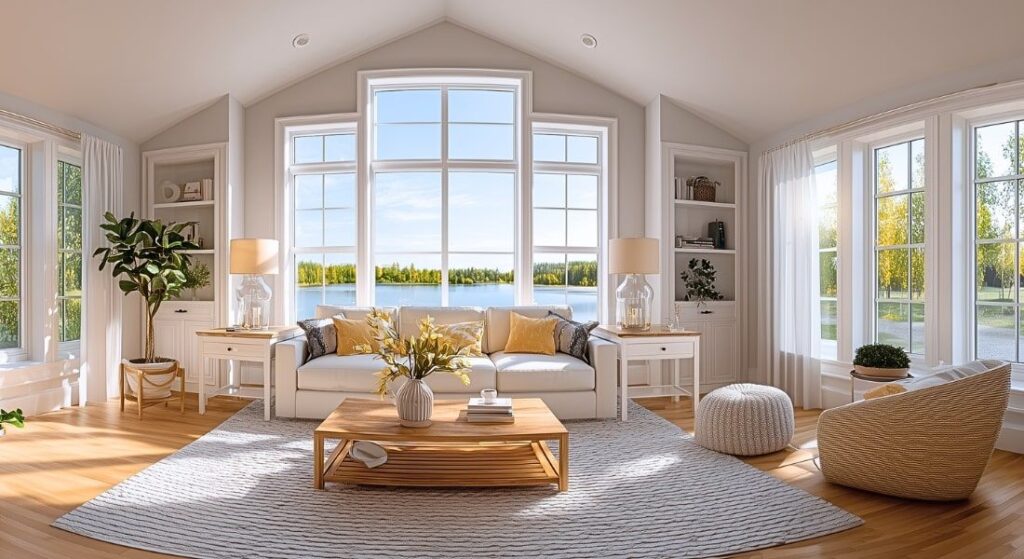When I sit down with a lake homeowner ready to sell, one truth comes up almost every time: they’re convinced they know what the listing price should be, but it rarely lines up with the market. This is the classic lake home buyer’s question, except in reverse. Sellers believe they’re experts on value because they’ve lived with the property for years. The reality is very different.
The Blind Spot
I’ve learned that most lake homeowners didn’t buy with spreadsheets in hand. They bought for summers on the dock, late-night bonfires, and family weekends. Their purchase wasn’t about returns; it was about lifestyle. That’s why, when it comes time to sell, they’re often off base on pricing.
They’ll look online for pricing and assume that’s accurate. They’ll look at a neighboring lake and believe the values must be similar. They’ll brush off negatives like an overgrown shoreline, a dated kitchen, or a neighboring construction site, thinking buyers won’t care. But buyers always notice.
Clearing the Pricing Fog
Why does this happen? Emotions blur reality. Sellers tell me, “We’ve put our heart into this place, so it has to be worth more.” I understand that sentiment, but markets don’t measure sweat equity or summer nostalgia. They measure supply, demand, and buyer perception.
I also see sellers underestimate how hyper-local lake values are. Two lakes that look identical on a map can have radically different pricing power because one is 10 minutes closer to Chicago or has a cleaner water report. Add in redevelopment pressures, old cottages getting replaced with million-dollar new builds, and the picture gets even more complicated.
The Downside Risk of Incorrect Pricing
Overpricing a lake home is not just a harmless mistake. It carries real costs.
- Stale listings: If a lake property sits on the market for too long, buyers assume something must be wrong.
- Missed timing: Lake markets can move in seasonal waves. Price it too high in July, and by September, you may have missed your buyer window. Pricing right early will save you time and money.
- Distrust: Savvy buyers know the comps because they’re working with agents, too. If your asking price is out of line, they won’t even bother negotiating. In fact, they may not ever come by to see your home.
I’ve watched sellers cling to inflated numbers, only to end up chasing the market down. By the time they adjusted, momentum was gone, and then they sold below the price they could have achieved if they had priced their home correctly from the start. This may sound uncommon, but it’s not, sadly.
A Local Professional’s Perspective
As a local professional Realtor®, I provide guidance, not headlines. I don’t just run comps; I explain what those numbers mean for your specific lake and your exact property. When I work with sellers, I reframe the conversation around buyer psychology and market positioning.
Here’s what that does for you as a seller:
- You avoid overpricing traps that stall your listing.
- You see the lake the way buyers do, not just the way you do.
- You catch market waves at the right moment.
- You protect your equity by pricing to attract serious buyers.
My role is not to argue with you about your number, but it’s to give you a realistic assessment of what that number means to your goal. Also, it’s to help you understand the lens buyers will use when they walk through your door. That perspective is what moves homes.
Local Reality in Southwest Michigan
In Southwest Michigan, this plays out in very specific ways. A seller on Paw Paw Lake may think their value compares to someone on Magician Lake. But Paw Paw draws a set of buyers with specific goals, with different commute times and redevelopment trends.
I’ve seen two lakes of the same size have values that differ by a hundred thousand dollars. One gets more Chicago weekenders because it’s closer to the highway. Another has new construction driving up the floor price. Sellers don’t track these micro-shifts, but buyers do. And that’s why accurate, realistic pricing is everything.
What We Hear from Lake Home Sellers
Why do sellers almost always overvalue their lake homes?
Because they bought for lifestyle, not numbers, emotions cloud their perspective. They tend to remember the purchase price or compare it to the wrong lakes instead of looking at current, hyper-local demand.
Isn’t it better to start high and come down if needed?
Not in this market. If you start high, you risk burning through the prime buyer pool. Once a listing sits, buyers assume something is wrong, even if the only issue was price. The longer a home sits for sale, the less it sells for, generally speaking.
What if my property has unique features buyers will love?
Unique features help, but they don’t erase negatives or override market demand. My job is to highlight and market your unique lake home while still anchoring your price where buyers will respond.
How do I know if my lake value is realistic?
I’ll show you not just comparable sales, but the buyer behavior shaping demand right now. When you see the data and how buyers are moving, the right number makes sense.
Ready to Sell Your Lakefront Home?
Selling your lakefront home is too important to gamble on guesswork. The right pricing strategy can mean the difference between capturing this year’s wave of buyers and chasing the market later. If you’re even considering selling, now or in the future, let’s have a conversation about where your property truly sits today. Start your conversation with us today.

